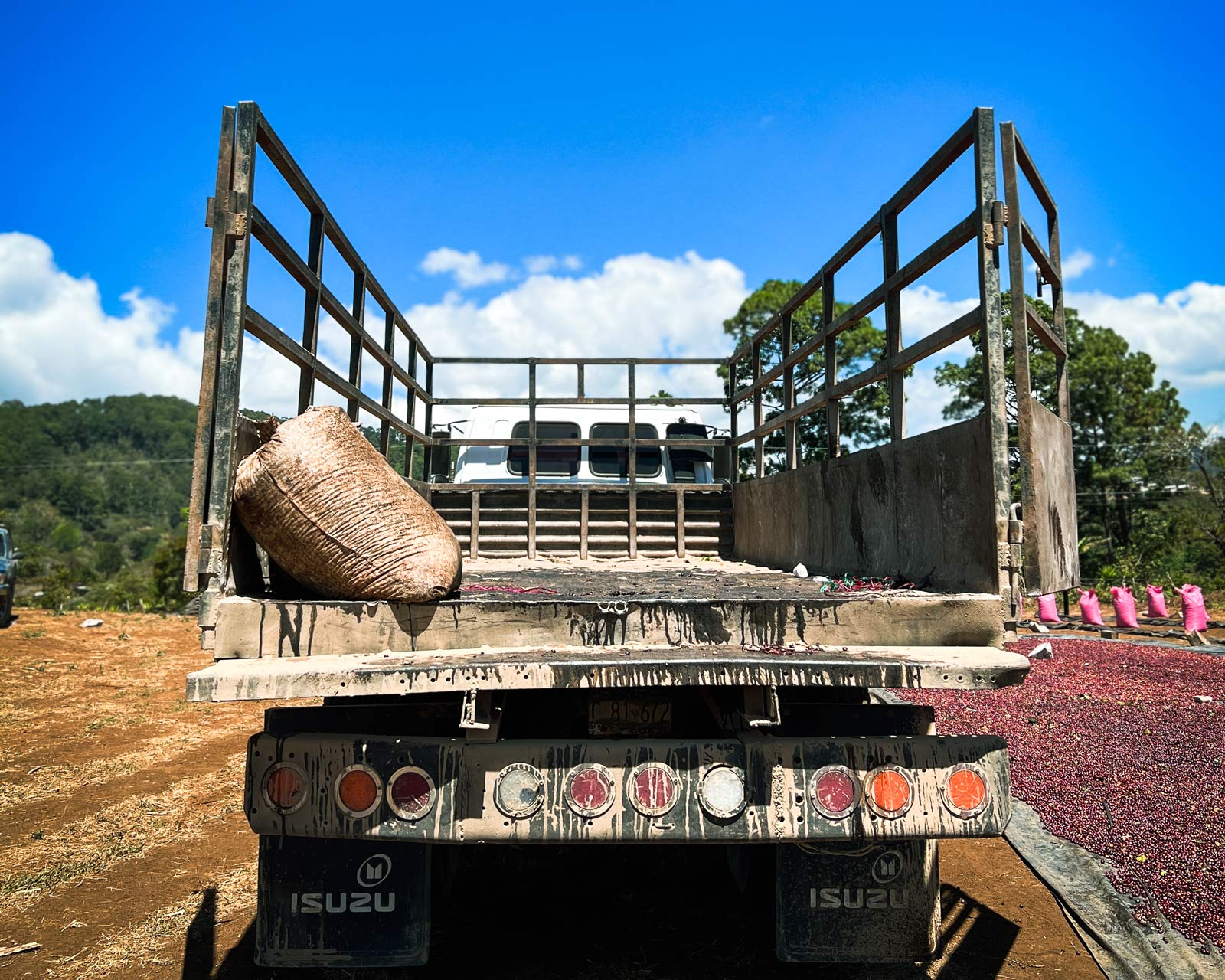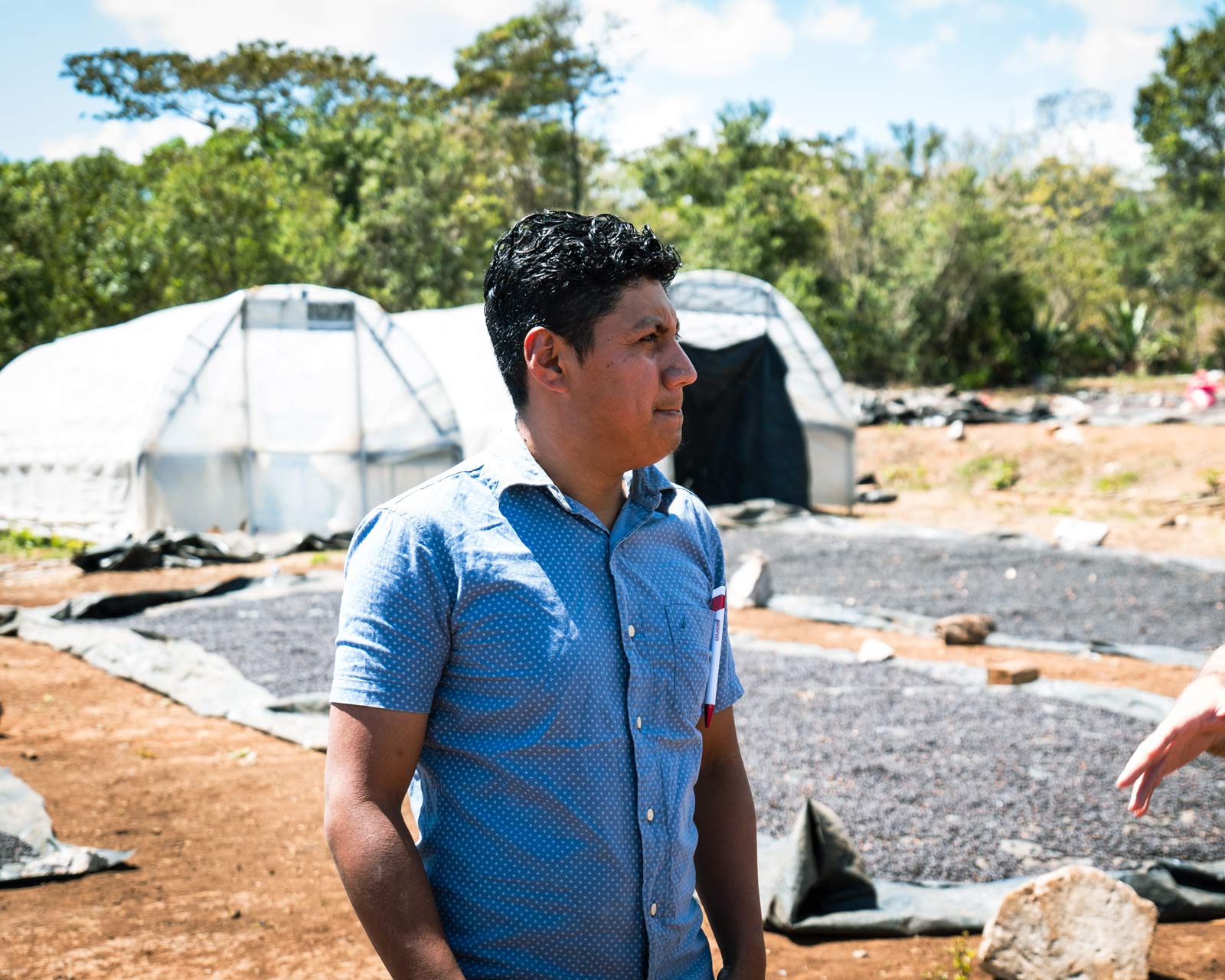New Coffee Release - Honduras Jocsan Mendoza
Region - Marcala
Altitude – 1500 masl
Varietal – Red Catuai, Yellow Catuai
Process – Anaerobic Honey
STONE FRUIT, NECTARINE, PEACH, AGAVE, CLOVER HONEY, BARREL-AGED WINE

Honduras – The etymology of the word Honduras translates to “depths.” The country has an endless depth of history, culture, diversity, and potential. Home to direct Mayan descendants some of the most well-preserved Mayan ruins in the world, Honduras is a proud and persistent country. Honduras is also one of the most diverse places in the Western Hemisphere, boasting over 700 species of birds, over 100 species of mammals, over 6,000 species of plants, and more species being discovered regularly. The diversity, tenacity, climate, and rich volcanic soil all build the stage for coffee farmers to prosper. However, sometimes there are obstacles that are not so easily overcome.
Honduras has quietly become the largest coffee-producing country in Central America. While it may not have the prestige as some of its neighbors like Guatemala, Costa Rica, or El Salvador, Honduras has been exporting more coffee than any other nation in the region, coming in as the seventh largest in the world for coffee export.
Due to a heavier focus on volume, Honduras has not been known for high quality. Transport and processing infrastructure in Honduras pose some problems. Poor processing leads to inferior quality coffee, even if the coffee was grown in perfect conditions. Honduran farmers would often smuggle their crop into neighboring Guatemala, El Salvador, or Nicaragua to fetch higher prices. This led to some of the best coffee in Honduras getting sold as coffee from those other places.
Honduran producers also battle against coffee leaf rust, a fungal infection that leads to loss of leaves and prevents cherry development. It spreads quickly, and for smallholder farmers, which comprise 95% of coffee farmers in Honduras, it could mean total crop devastation. Little support to the farmers was given for a long time, leading them to take matters into their own hands.
Many farmers have banded together into small, supportive networks. Some groups have formed cooperatives that have been certified by organizations like Fair Trade. Others have simply pooled their resources together to purchase centralized mills that they own collectively and have improved their processing methods. Through the hard work and diligence of specialty-focused producers, the perception and quality of Honduran coffee have changed.
This specific coffee is from Jocsan Mendoza, a young farmer who lives in the small town of Cabañas in the Marcala region. Jocsan took to coffee production early by working on his father’s coffee farm. He found a passion for the family business that has blossomed into a passion for the larger specialty coffee industry.
He took over the farm at the age of 19, following his father’s passing. Although young, newly thrust into leadership, and not very experienced, his neighboring farmers began to take notice of his focus and potential. Alex Ponce, whose coffees we have also had the honor to serve, soon took Jocsan under his wing and mentored him in his pursuit of excellent coffee. Alex connected Jocsan with Arturo Paz and Beneficio San Vicente, who encouraged him to attend Cupping School through IHCAFE (the governing body for Honduran coffee) so that he could improve the quality of his coffee at the farm level.
It was here where he honed his natural tasting and farming abilities: identifying best agronomy practices, learning about milling and different fermentation methods, sample roasting, storage and how all of that ultimately controls the flavor profile of the final cup.

We had the chance to meet Jocsan at his dry mill, where he humbly shared the story of his journey in coffee farming and what he is looking forward to for the future of his farm.
He and his brother, who works as an agronomist for the farm, showcased an area of the mill where they are currently testing different coffee tree varieties, experimenting with several variables that affect the plant, such as how much shade and water certain varieties might need. Included in these trees are rare and exciting varieties, such as Gesha and Pacamara.
Near the end of our visit with him he asked if he could serve us his coffee, an offer we could not refuse. He pulled out his brewing equipment and donned his IHCAFE apron, pride filling his face. His brother shared a sweet cornbread made by his grandmother that morning as we drank our coffee, introducing us to the tradition of café con pan.
We are now honored to serve you this same coffee that we drank that morning: an Anaerobic Honey processed blend of both Red and Yellow Catuai varieties.

